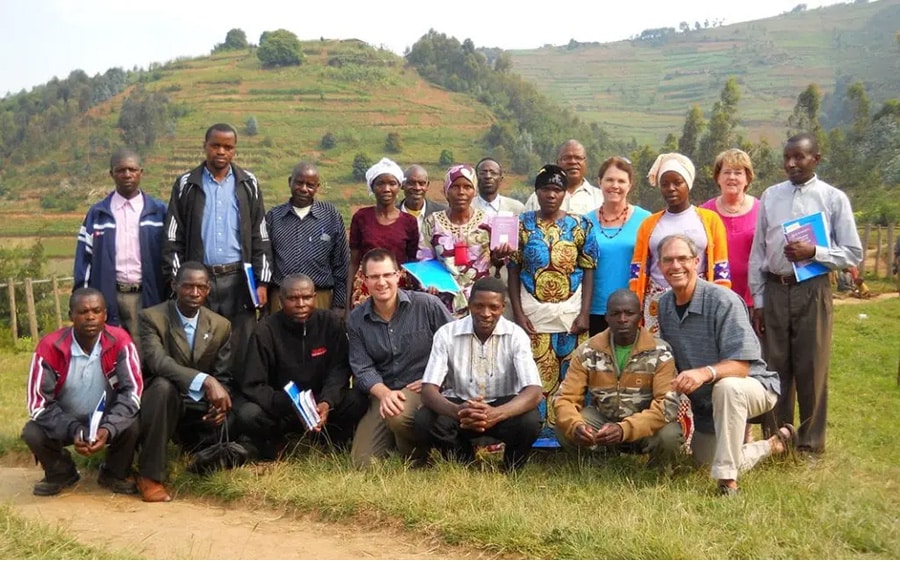
By Laura McKillip Wood
In 2018, the Rwandan government passed a law requiring local churches to meet in a “legal” building and have a “legal” pastor. A legal pastor is required to have an associate degree in Bible or theology by later this year.
Rwanda Challenge was already focusing on educating pastors and improving biblical and theological knowledge through a certificate program, but this law caused them to shift their focus to providing degrees for pastors in Rwandan churches.
In the spring of 2019, Frank Reynolds of Rwanda Challenge—a graduate of Mid-Atlantic Christian University in Elizabeth City, N.C.—approached MACU’S administration and proposed a partnership to provide professors and curriculum for the students in the program.
MACU adjusted their associate degree program to make it relevant to Rwandan pastors and created the Associate of Arts: Bible and East African Ministry.
“For example, we took out a church history course that focused on the USA and replaced it with an African church history course,” said Dr. Kevin Larsen, vice president for academic affairs at MACU. Larsen said a few students began the program in May 2021. A larger group began in January 2022, and a third cohort started just last month. Thirty-one students currently participate in the program, and MACU anticipates the first graduations will occur this December.
A few one-week intensive courses are taught in Rwanda. Students complete the in-class instruction and assignments are due over the following seven weeks. The most recent in-person course was taught by Dr. Bane Angles, associate professor of pastoral ministry, who taught a Christian formation course. During his time in Rwanda, Angles also met with several church leaders and preached at a local church.
Most courses are taught online. A few of those courses are comprised of only Rwandan students, but most also have U.S. students enrolled.
“The Rwandan students value and want to have courses with our stateside students,” Larsen said. All students benefit from their interaction with one another in these classes.
A few of the students participating in the degree program are older and seek to complete the program so they can continue in their pastoral positions. Most of the students are young, though, and plan to work in ministry.
Rwandan law requires that all higher education instruction be in English. Most middle-aged Rwandan adults were educated when French was the official language, however, so classes with English instruction can be particularly difficult for them.
MACU professors volunteer their services to keep costs low. In fact, students do not pay tuition, and Rwanda Challenge raises funds to provide a laptop to each student. Each laptop is loaded with necessary software, such as Microsoft Office suite and Logos Bible software. Rwanda Challenge also purchases all the necessary textbooks for the students and pays travel expenses for faculty who teach face-to-face in country. Rwanda Challenge is currently raising funds to purchase property and a building that will serve as an education center that MACU can use.
This program not only allows the churches in Rwanda to stay open, but it also prepares church leaders to go into other parts of East Africa. With the tools and skills students gain from their education, they are better equipped to minister effectively to the people and to reach out to others who do not know Jesus.
To learn more about this partnership or to contribute to defray the cost of tuition and materials, visit MACU’s website or go to Rwanda Challenge at www.rwandachallenge.com.
Laura McKillip Wood, former missionary to Ukraine, lives in Papillion, Nebraska, and writes about missions for Christian Standard.


0 Comments
Trackbacks/Pingbacks